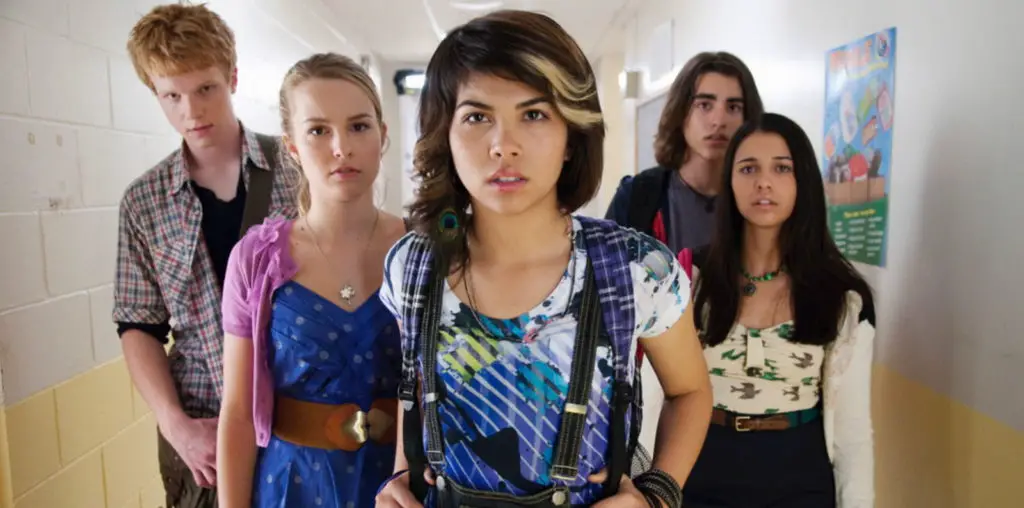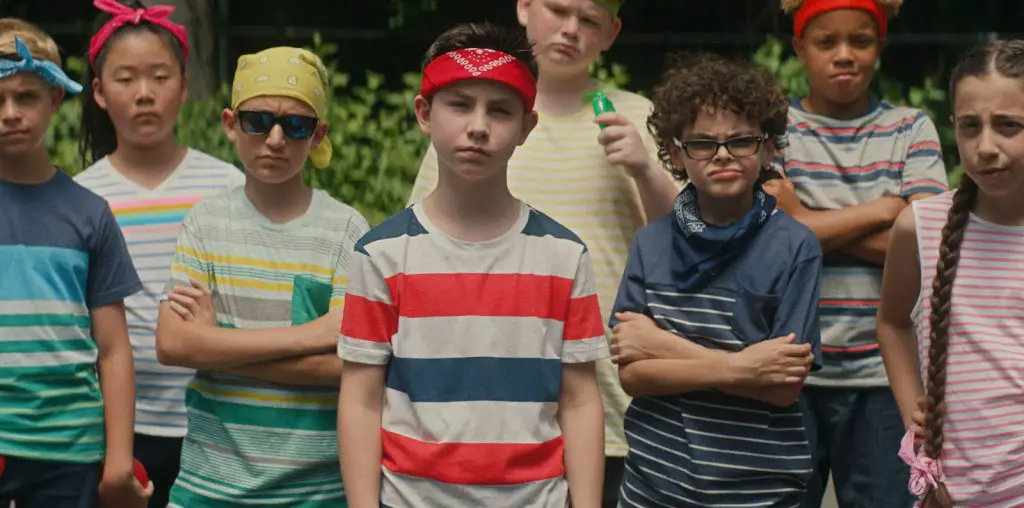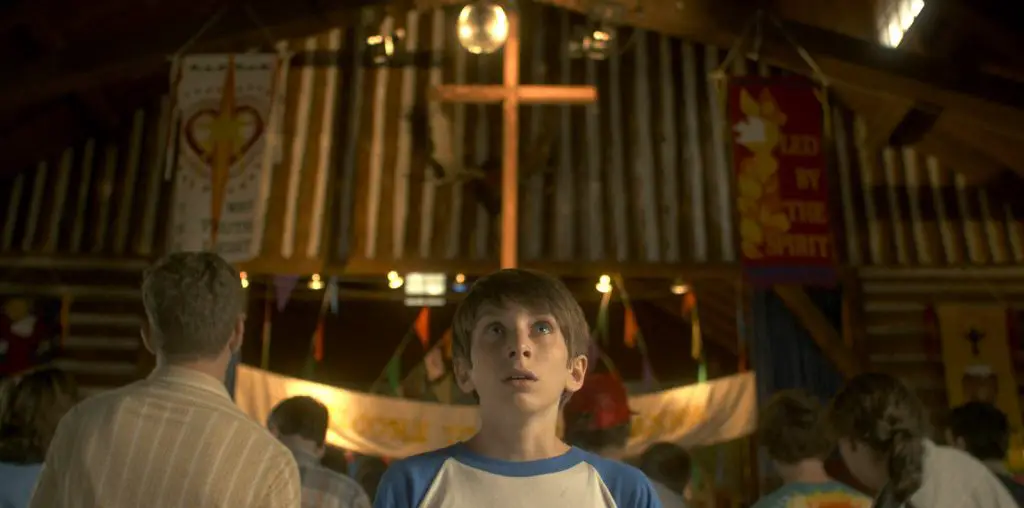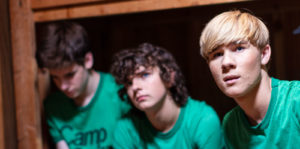
Every summer, my parents sent me off to camp to get away from the television (and them). Today, parents see the benefits of sending their kids off to camp so they become unglued to their phones and social media. This is the idea behind writer-director Lee Fanning’s family film, Surviving Camp Analog, or is it?
Young teen Ryan (Luke Partridge) is the ringleader behind a gang of YouTube pranksters known as The Shocklosers. The group consists of Ryan, his buddies Thomas (Hunter Flanagan), Caleb (Daniel Profeta), and Bennett (Ryan Lorenz), and their latest viral prank, involving a few Carolina Reapers, goes horribly awry. As punishment, the quartet is sent to Camp Analog, where they will live free of any electronics for what could be considered social media rehab.
Upon their arrival, Ryan, Thomas, Caleb, and Bennett are stripped of all electronics and welcomed by Camp Director Suggs (Wayne Caparas). In an inspirational introduction, Suggs explains the pitfalls of smartphones and the addictive way technology has us believing that we are more important than everyone else. Why? Because our devices are the center of our world, and the camp serves to reset our thinking.
While you may think Surviving Camp Analog is a story about living in nature and communicating with our mouths and human interaction, it suddenly takes a sharp turn in a very different and unexpectedly darker direction. The campers are soon divided into two groups: the Alphas and Betas. The Alphas are campers who embrace Director Suggs’ message about the harmful effects of the digital world. Alphas are designated by wearing camp-issued suspenders and given privileges to make their time at Camp Analog pass comfortably.
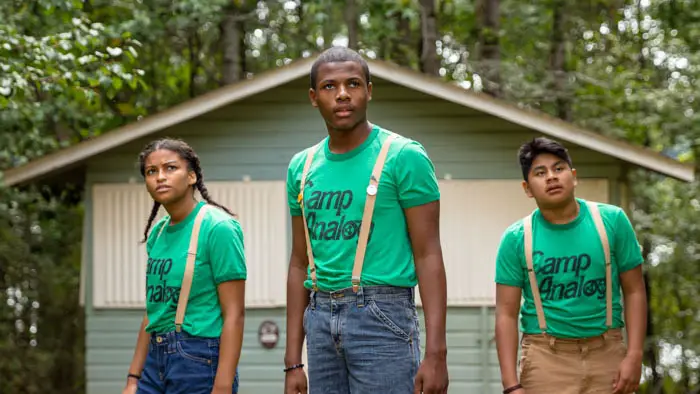
“…Ryan, Thomas, Caleb, and Bennett are stripped of all electronics and welcomed by Camp Director Suggs.”
The Betas hold on to their old way of thinking, which causes their work at the camp to be difficult. They’re also considered and treated as lower-class citizens as long as they continue to resist Camp Analog’s mission. Of course, our band of intrepid Shocklosers are not buying into Sugg’s message and refuse to become Alphas.
Here, Surviving Camp Analog becomes a morality tale about individualism and freedom. Ryan and his friends could quickly go along with Suggs’ philosophy of life and blindly accept his view of the outside world, if for no other reason than just to be treated like everyone else. But our heroes decide to stand behind personal freedom on principle rather than go along with everyone else because it’s easy.
This is one of those movies I’d show to our youth so that we could have a discussion afterward about the importance and pitfalls of personal freedom. A lot is going on underneath the surface of the story that some would say is spiritual and political in nature. Not so long ago, someone suggested that if I wanted to enjoy certain benefits of society, all I had to do was take some medicine. “Just do it,” they exclaimed. Yet, some refused out of principle… were they wrong?
Watching Surviving Camp Analog, I wondered what if the Disney Channel adapted Lord of the Flies. The film has that low-budget quality in both production values and acting that I’m used to in the faith-based movies of my youth. Fanning certainly did not have a Disney budget for his tale, but he managed to use the resources he did have to tell a thought-provoking story in the woods with a valuable lesson at the end.
For screening information, visit the Surviving Camp Analog official webpage.
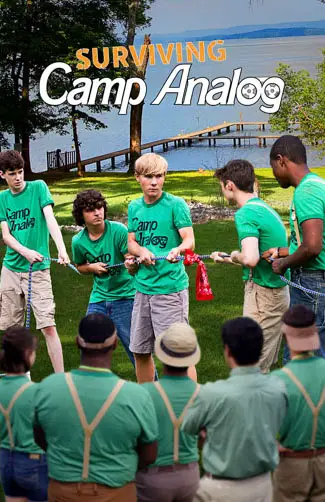
"…what if the Disney Channel adapted Lord of the Flies."
